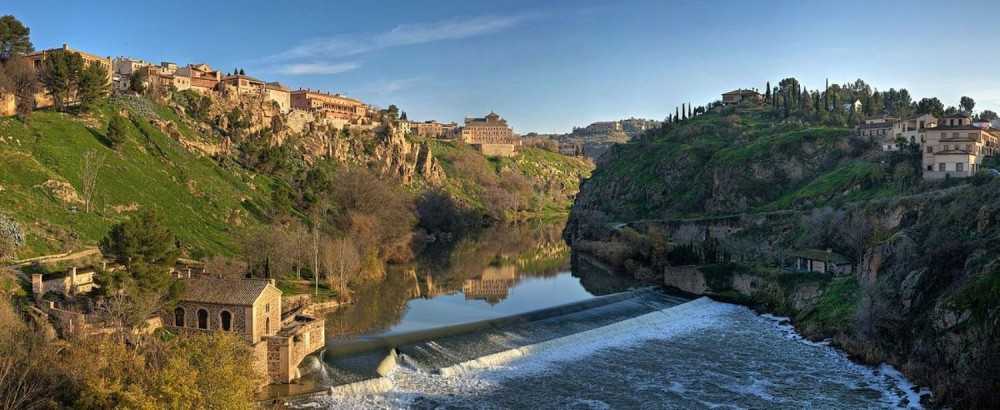Tagus River

The Tagus River is the Iberian Peninsula’s second-largest river, after the Douro River, and is not merely a geographical feature but a cultural lifeline that has shaped the identity and heritage of Portugal. In this comprehensive exploration, we delve into the multifaceted reasons why the Tagus River holds immense cultural importance, weaving through history, art, literature, and the daily lives of those who call its banks home.
I. Historical Significance: A Witness to Millennia of Civilization
1. Ancient Civilizations: Cradle of Tartessos and Roman Grandeur
Trace the footsteps of ancient civilizations along the Tagus River. From the mysterious Tartessians to the grandeur of Roman Hispania, the riverbanks bear witness to the rise and fall of empires, leaving behind archaeological treasures and a rich tapestry of historical narratives.
2. Moorish Legacy: Al-Andalus and the Golden Age
Explore the impact of Moorish rule on the cultural landscape of the Tagus. Al-Andalus, with its intellectual flourishing and architectural marvels, left an indelible mark on the region, influencing art, science, and the coexistence of diverse cultures.
II. Architectural Heritage: Cities, Castles, and Bridges
1. Lisbon: City of Seven Hills and Tagus Vistas
Discover the architectural splendors of Lisbon, the capital city nestled along the Tagus River. From the medieval charm of Alfama to the modernity of Belem, explore how the city’s skyline and neighborhoods reflect the cultural dynamism fostered by the river.
2. Castles and Fortresses: Guardians of Tagus’ History
Embark on a journey to the castles and fortresses that line the Tagus River. These structures, such as the Castle of Almourol, stand as silent sentinels, telling tales of medieval knights, strategic battles, and the ever-present connection between the river and defense.
3. Iconic Bridges: Engineering Marvels Connecting Cultures
Delve into the engineering marvels that span the Tagus River. From the iconic 25th of April Bridge to the Vasco da Gama Bridge, these structures not only facilitate transportation but also symbolize the connection between cultures and eras.
III. Cultural Festivals and Traditions: Celebrating Along the Tagus
1. Festas de Lisboa: Lisbon’s Vibrant Summer Festival
Experience the joy and cultural vibrancy of Festas de Lisboa, an annual celebration that transforms the city into a lively spectacle. From traditional music and dance to the sardine-themed festivities, witness how the Tagus River becomes a stage for cultural expression.
2. Almada’s Tall Ships Race: Sailing Heritage on the Tagus
Explore the maritime traditions of the Tagus through events like the Tall Ships Race in Almada. Witness majestic sailing vessels, participate in maritime-themed activities, and celebrate the shared heritage of coastal communities along the river.
IV. Literary Inspirations: Tagus in Poetry, Prose, and Art
1. Poetic Muse: Tagus in Portuguese Literature
Uncover the poetic allure of the Tagus River in the works of renowned Portuguese poets. From Camões to Pessoa, explore how the river’s ever-changing waters and scenic landscapes have inspired verses that capture the essence of Portugal’s cultural identity.
2. Artistic Representations: Tagus in Paintings and Sculptures
Journey through the art galleries and museums that showcase the Tagus River’s influence on Portuguese artists. From landscape paintings to sculptures, the river has been a muse for creative minds, depicting its beauty and cultural significance across various mediums.
V. Environmental Harmony: Tagus as a Cultural Ecosystem
1. Biodiversity and Conservation: Nurturing Nature Along the Tagus
Understand the symbiotic relationship between the Tagus River and the diverse ecosystems it supports. Explore the flora and fauna that thrive along its banks and the ongoing conservation efforts aimed at preserving this natural heritage.
2. River Cruises and Eco-Tourism: Experiencing Tagus’ Cultural Ecology
Embark on river cruises and eco-tourism adventures that allow travelers to experience the Tagus River’s cultural ecology firsthand. From birdwatching to exploring riverfront villages, these activities foster a deeper connection between people and the river’s natural heritage.
VI. Contemporary Impact: Tagus in Modern Culture
1. Economic Importance: Trade and Industry Along the Tagus
Examine the contemporary role of the Tagus in shaping economic activities. From bustling ports to industrial zones, understand how the river continues to contribute to trade, commerce, and the modern economic landscape of Portugal.
2. Urban Development: Tagus as a Hub for Innovation
Explore the urban development initiatives that revolve around the Tagus River. From waterfront revitalization projects to the emergence of innovation hubs, witness how the river’s cultural importance extends into shaping modern urban spaces.
Conclusion: The Living Heritage of the Tagus
As we navigate the cultural importance of the Tagus River, it becomes evident that its significance extends far beyond geographical boundaries. The river stands as a living testament to the resilience of cultures, the interconnectedness of history, and the enduring impact of nature on human civilization. Embracing the Tagus is not just an exploration of landscapes; it is a journey into the soul of Portugal, where the past, present, and future converge along the ever-flowing waters of cultural heritage.
Know More about the Tagus River.
What are The Religious Places of the Tagus River?
When Did The Tagus River Basin Become a Focus?
Where is The Tagus River Located?
Who Were The Key Historical Figures and Civilizations of The Tagus River?
How to Reach Tagus River?




